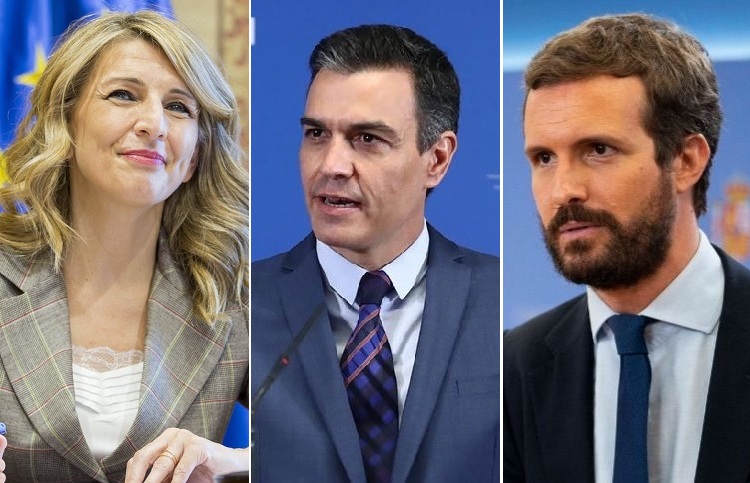The Diplomat
Just a few hours after the Spanish Minister of Foreign Affairs, José Manuel Albares, called for the “unity” of the Spanish political forces around the crisis in Ukraine, both the leader of the PP and the main representative of Unidas Podemos in the Government have begun to move in that direction.
“That what has been possible in Europe and with the transatlantic allies is also possible with the Spanish political forces”, declared Albares this past Tuesday during his appearance before the Foreign Affairs Committee of the Congress of Deputies to explain, at his own request, the current crisis between Ukraine and Russia.
In the subsequent debate, the PP spokeswoman, María Valentina Martínez Ferro, warned that the explanations should have been given by the President of the Government, and not by the Minister, and criticized the fact that Pedro Sánchez had not yet contacted the leader of the PP, Pablo Casado, to talk about Ukraine. She also denounced that Spain cannot be a “credible and reliable” partner with a government that does not speak “with one voice” on this conflict.
In any case, the one who has decided to take the step has been Casado himself, who contacted the President of the Government yesterday to have a half-hour telephone conversation about the Ukraine crisis, shortly after the spokesperson minister, Isabel Rodríguez, declared to TVE that if the leader of the PP wanted to talk to Pedro Sánchez he had “no more than to call and pick up the phone or put a message”.
“I have called Sánchez to address the Ukrainian crisis,” Pablo Casado announced via Twitter. “I have reiterated the support of the PP for the actions of Spain within NATO and the EU” and “I have also asked him to inform the Spaniards in Congress and ensure unity in the Government for foreign policy,” he added. In this regard, the Popular Group yesterday formally presented the appearance of Pedro Sánchez “to inform Congress, the seat of national sovereignty, on the position of the Government and the actions taken in the framework of NATO and the EU in relation to Ukraine,” according to its spokesperson, Cuca Gamarra, via Twitter.
In his response to Casado, according to Moncloa sources, Pedro Sánchez thanked the support of the PP in this crisis, explained that the Government’s objective is to guarantee international legality and the territorial integrity of Ukraine prioritizing diplomacy, deterrence and de-escalation and committed to inform the parliamentary groups punctually through Albares or himself if the circumstances require it.
Unidas Podemos
Regarding Unidas Podemos, partner of the PSOE in the Government of Pedro Sánchez, the positions have changed significantly compared to last week, when several prominent members of this formation (the spokesman in the Foreign Affairs Committee of the Congress, Gerardo Pisarello; the secretary of International, Idoia Villanueva; and even the former secretary general of Podemos and former vice-president of the Government, Pablo Iglesias) denounced “the warmongering escalation in Ukraine to defend the interests of the United States” or the intention of “the socialist part of the Government” to “confront all its partners and set up the ‘war party’ with the PP” (in the words of Iglesias). In response to these statements, Albares limited himself to recalling that “the foreign policy of the Government is set by the President”.
An example of this change of tone was given last Tuesday by the secretary general of Podemos in Galicia, Antón Gómez-Reino, who assured during Albares’ appearance in Congress that the Executive will have “all the support” of his party to “build a policy of peace”. He also rejected the expansion of NATO towards the East and defended for Ukraine “a neutrality regime similar to that of Finland”, outside the Atlantic Alliance.
However, the most evident change was made yesterday by another Galician, the second vice-president of the Government and Minister of Labor and Social Economy, Yolanda Díaz, who declared in Barcelona that “in the Government there is only one position” regarding this crisis.
“We are in a very complex position, very difficult, but in which our country is working for dialogue, for de-escalation and to avoid what you know, but of course the Government has a single voice,” she said. Díaz also declined to comment on statements made by the Minister of Social Rights, Ione Belarra, in which she defended the Government’s support for diplomacy “beyond bellicose gestures”. “I never comment on the opinions of other voices. I respect everyone. You’re not going to see me playing politics in this way,” she responded.







